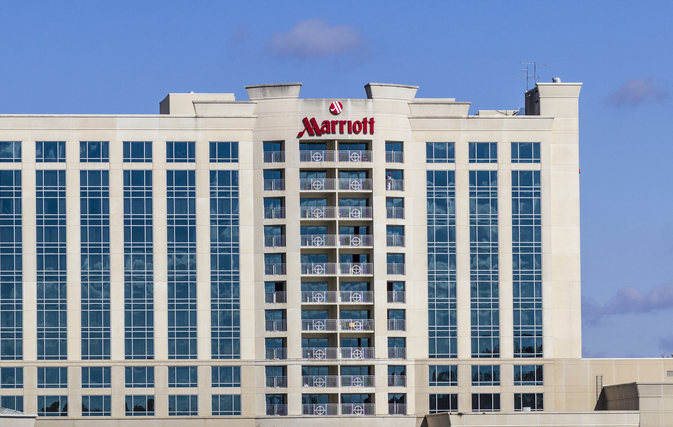BETHESDA, MD — Marriott International plans to add 285,000 to 300,000 rooms globally by 2019, part of a three-year growth trajectory that includes opening a hotel every 14 hours around the world.
Marriott says it also wants to capitalize on its loyalty programs – Marriott Rewards, which includes The Ritz-Carlton Rewards, and Starwood Preferred Guest. The programs now have over 100 million members and are growing at a record pace of roughly one million net new members per month since the company’s acquisition of Starwood Hotels and Resorts in September 2016.
“We are more optimistic than ever about our future,” said Arne Sorenson, Marriott International President and CEO. “Marriott has made a significant leap forward in distribution and scale with its once-in-a-generation acquisition of Starwood. With global travel estimated to increase at a 7% compounded rate over the next 10 years and international trips expected to top 1.8 billion by 2030, Marriott is well positioned to benefit given its strong global footprint now in 122 countries and territories and an unmatched portfolio of 30 lodging brands.”
In its three-year growth plan the company expects to earn US$675 million in stabilized fees from hotel rooms added to its system in 2017 through 2019. In addition, non-property related franchise fees, largely credit card branding fees, should increase by $100 million during the three years. The plan assumes RevPAR (Revenue per Available Room) growth of 1 – 3% compounded annually through 2019.
Marriott says it has made “great progress” on integrating Starwood, including immediately linking loyalty programs, integrating its development organization and rolling out its unified guest feedback system, guestVoice, across legacy-Starwood properties.
“While the acquisition has provided us with enviable distribution, scale and global footprint, Marriott’s strategy hasn’t changed,” said Leeny Oberg, Marriott International Executive Vice President and CFO. “We remain focused on growing our superior brand portfolio through signing long-term, high quality contracts with minimal investment.”
The Starwood acquisition had a transformative impact on Marriott’s global footprint. Marriott went from operating in 87 countries and territories at the end of 2015 to 122 by the end of 2016, taking a significant lead in market share over its next largest competitor.
Marriott now has over 8% of worldwide hotel rooms when including existing hotels and the signed new construction pipeline, with leading market share in North America, Asia Pacific, and the Middle East and Africa. Over the next three years, the company expects net room growth to accelerate to an annual compound rate of 6.5%, compared to a 5% annual compound rate over the last three years (including the legacy Starwood brands).
The company also announced an investment in a strategic, technology-based partner called PlacePass. This partnership will allow Marriott to offer guests and members more experiential opportunities when they travel.

